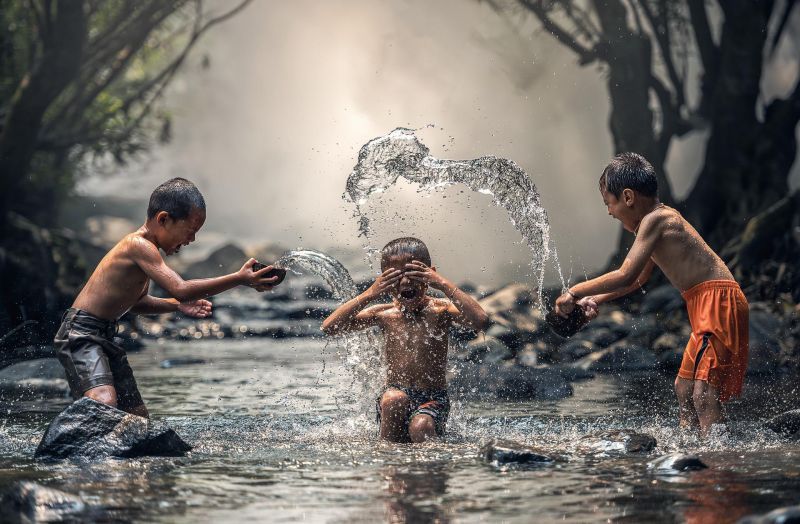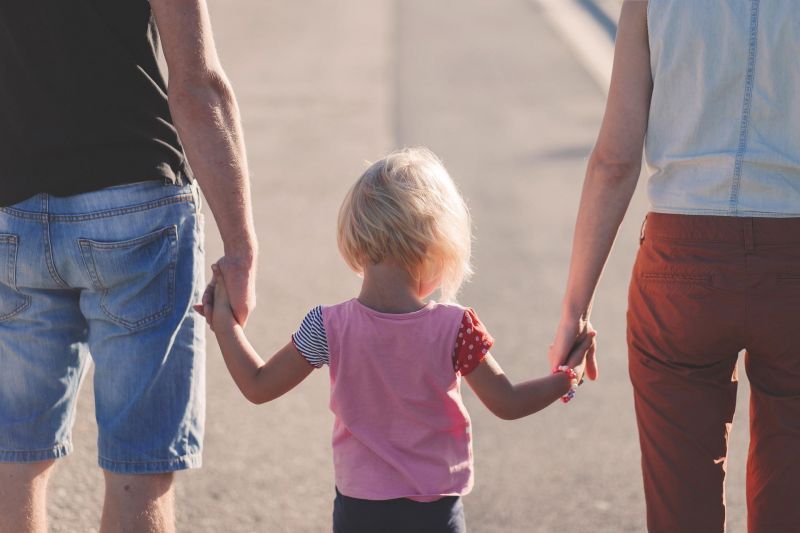
www.unesa.ac.id
Unesa.ac.id, SURABAYA–Children are a vulnerable group that should receive protection and support from their parents, the surrounding environment and the state. However, recently there have been many cases involving children, ranging from bullying to violence.
The Ministry of Women's Empowerment and Child Protection (PPPA) recorded at least 11,952 cases of child violence recorded by the Online Information System for the Protection of Women and Children (Symphony) throughout 2021.
Elsewhere, the Indonesian Child Protection Commission (KPAI) received public complaints related to 2,982 cases of special child protection in 2021. Of these, at most 1,138 cases of children were reported as victims of physical and/or psychological violence.
Putri Aisyiyah Rachma Dewi, S.Sos., M.Med.Kom., Head of the Gender and Children Division, UNESA PPKS Task Force said that the rate of violence against children was increasingly worrying. The environment where they learn and play is increasingly unsafe and threatens the process of growth (physical) and development (psychological) of children.
“Our society's culture is very permissive to the culture of violence even these children are threatened not only from adults but also from other children. People tend to be permissive and violence is increasingly considered normal," said the lecturer in Communication Studies.
Unfortunately, sexual violence also often afflicts children. The number of sexual violence against children is increasing from year to year. Perpetrators of sexual violence, not only by foreigners. However, the people closest to the child himself are the culprits. Some are from relatives, neighbors and even the nuclear family.

www.unesa.ac.id
The role of parents
According to Putri, children's reasoning power which is still not complex and their simple mindset is not a factor in sexual violence against children, but it is the environment around children that is not able to provide maximum protection to them.
“One of the environments in question is family. Parents sometimes feel that their children's needs are only food, clothing, and shelter, so parents tend to be busy and pay less attention to children such as playing with anyone, playing long, and the like," he explained.
The increase in cases of violence against children cannot be separated from the increasing individualism of society. Many people don't care about their surroundings or even if they just ask questions, they will be considered too curious and interfere in other people's affairs.
"I think the state must also be present to create a child-friendly public environment, multiply city parks with children's toys with safe protection, such as the availability of mattresses so that when children are hit they don't get injured and so on," he explained.
Sexual violence can have serious physical and psychological impacts on children. In addition, it also affects the child's perspective on sexuality and the impact will carry over to adulthood if the child is not given more attention.
“Imagine a young child who still doesn't know anything, suddenly gets his first sexual experience from someone else. Sex education is important even though it is still taboo to explain it to children,” he said.
Drs. Mintohari, M.Pd., Head of the UNESA PGSD Study Program added, what children experience will continue to be embedded into adulthood. When the child is an adult, he will tend to be antipathy, fearful and feel inferior when hanging out with friends and interacting in the community.
In addition, he can also have thoughts of revenge and do the same to other children. What they feel first must be felt by other children.
“Children who experience sexual violence will be traumatized. Physical trauma is easy to heal, but psychological trauma is definitely difficult to heal. So it must be given certain treatment such as assistance. If not, the effects will carry over into adulthood," he said.
Sex Education
Sex education, he added, is important given to children. When? That is when the child has begun to know himself, others, and is able to communicate and interact with others. The earliest education given is to know the organs or bodies themselves, which limbs should be covered and which ones may be shown.
Children also need to be taught how to dress and treat peers of the opposite sex. Currently, the kindergarten study group curriculum has begun to include material on organs, who is allowed to touch and what to do. If there is a stranger who touches, the child can scream and run for help from people around.
Mintohari hopes that various cases involving children should be a concern for all parties. National Children's Day, July 23, 2022, needs to be a strengthening of the awareness movement to improve the quality of a safe and comfortable environment for the growth and development of children.
"This commemoration day is not a ceremonial one that enliven the calendar. However, it must really be part of the movement to increase a sense of concern for children and ensure the fulfillment of children's rights to the rights to life, growth, and protection," he said. [UNESA PR]
Author: Reyka Ayu
Editor: @zam Alasiah*
Photo: Image by Sasin Tipchai from Pixabay , Image by Pexels from Pixabay
Share It On:






